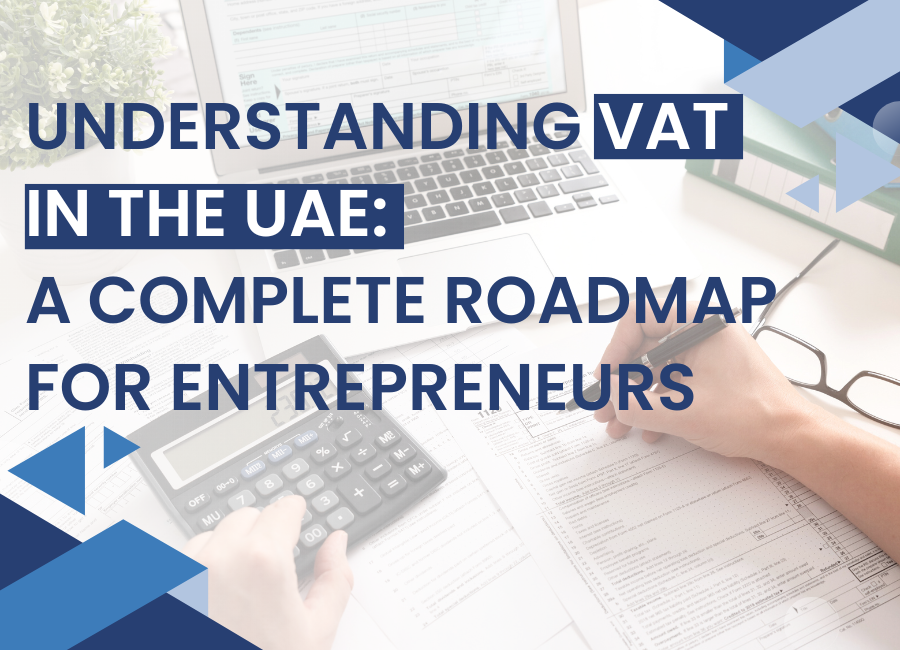
As an entrepreneur in the UAE, understanding your tax obligations is crucial for the success and growth of your business. Value Added Tax (VAT) is one such vital aspect that impacts businesses across the Emirates. In this comprehensive guide, we will demystify VAT, provide a step-by-step VAT calculation process, discuss VAT verification, and highlight key considerations every UAE entrepreneur should be aware of.
1. What is VAT and Its Significance for Businesses in the UAE
VAT, or Value Added Tax, is a consumption tax imposed on goods and services at each stage of the supply chain. It was introduced in the UAE on January 1, 2018, as part of the government's efforts to diversify revenue sources and enhance public services. Understanding how VAT works is fundamental for entrepreneurs to navigate their business operations efficiently.
In the UAE, VAT is levied at a standard rate of 5% on most goods and services. However, certain goods and services may be exempt or subject to zero-rated VAT. As an entrepreneur, it's crucial to identify which category your business falls into to ensure proper compliance.
2. Unravelling the VAT Calculation: A Step-by-Step Guide
Calculating VAT can be daunting, especially for new entrepreneurs. However, breaking it down into simple steps can make the process manageable. Here's a step-by-step guide to calculating VAT for your business transactions:
Step 1: Identify Taxable Supplies: Determine which goods or services your business provides are subject to VAT at the standard or zero rates.
Step 2: Determine Output VAT: The tax charged to your customers on your taxable supplies. Multiply the selling price by the applicable VAT rate (usually 5%) to calculate the Output VAT.
Step 3: Calculate Input VAT: Input VAT is the tax you pay on business expenses related to taxable supplies. Keep track of these expenses and add them up during a specific tax period.
Step 4: Offset Input VAT against Output VAT: Deduct the Input VAT from the Output VAT to arrive at the VAT payable to the authorities.
3. Ensuring Compliance: VAT Verification and You
VAT compliance is crucial to avoid penalties and legal issues. Regularly verifying your VAT returns is essential to ensure accurate reporting. Engaging with a professional accounting and auditing service provider like Bookkeeping Experts LLC can help you conduct comprehensive VAT verification, identify discrepancies, and rectify them before they escalate.
4. VAT in the UAE: Key Considerations for Entrepreneurs
As a UAE entrepreneur, keeping certain essential considerations in mind will help you navigate the VAT landscape effectively:
a) Record Keeping
Maintain meticulous records of all business transactions, invoices, and expenses to facilitate smooth VAT audits.
b) VAT Registration Threshold
As an entrepreneur, you must monitor your annual taxable turnover to determine if you need to register for VAT. The threshold for mandatory VAT registration is AED 375,000, meaning if your taxable turnover exceeds this amount, you must register for VAT. However, you can also opt for voluntary registration if your turnover is below the threshold but above AED 187,500.
c) Input and Output VAT
As a registered business, you must charge VAT on the goods and services you provide to your customers. This VAT is known as output VAT. On the other hand, you can claim back the VAT you have paid on your business expenses, known as input VAT. The difference between the output VAT and input VAT is the net VAT you owe or are owed.
d) Voluntary vs. Mandatory Registration
If your taxable turnover exceeds the mandatory registration threshold, you must register for VAT within 30 days. On the other hand, if your turnover is between AED 187,500 and the required point, you can voluntarily register for VAT.
e) VAT Registration Process
Registering for VAT is an essential step for every business that meets the mandatory or voluntary registration criteria. The process can be completed online, making it relatively straightforward for entrepreneurs.
Necessary Documents for VAT Registration
Before starting the registration process, gather all the necessary documents, including:
-
Your trade licenses
-
Proof of identity and residency
-
Bank account details
-
Details of business activities and turnover
f) VAT-Exempt Goods and Services
Not all goods and services are subject to VAT. Some items, such as essential food, healthcare services, and educational materials, are VAT-exempt. As a business owner, you must identify whether your products or services fall under the exempt category to avoid unnecessary tax liabilities.
By following this roadmap, UAE entrepreneurs can confidently tackle their tax obligations, particularly VAT. Remember, staying compliant and seeking professional assistance when needed will pave the way for a successful and sustainable business journey.
For expert VAT consultation, bookkeeping services, auditing, and other business support in the UAE, reach out to Bookkeeping Experts LLC. Our experienced professionals are here to assist you in every step of your entrepreneurial journey.
For More Info Contact Us Today

